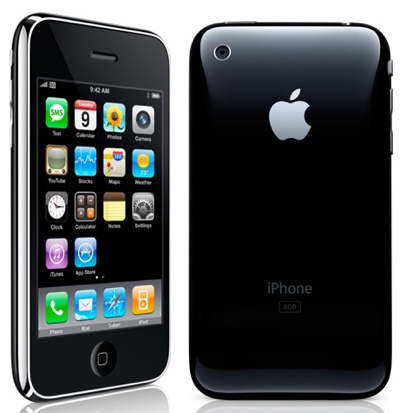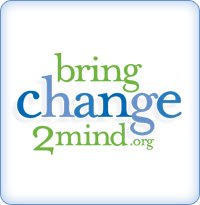 It's a little funny that fairy tales and stories that were read to me as a little girl have been coming to mind lately. I'm not exactly sure what that means (haha), but what I would guess is that these stories come to mind because they actually have some good morals and principles rooted in them (that are not just meant for child-sized ears and lives) and are also relevant to daily happenings.
It's a little funny that fairy tales and stories that were read to me as a little girl have been coming to mind lately. I'm not exactly sure what that means (haha), but what I would guess is that these stories come to mind because they actually have some good morals and principles rooted in them (that are not just meant for child-sized ears and lives) and are also relevant to daily happenings.
Today, through a couple of conversations that I had, I was thinking about and reminded of the extremes that we see in our culture when it comes to almost every single arena. Whether it's food, our bodies, and weight, or money, work, love, sex, success, sports, entertainment, etc.. extremes are everywhere. Whether it is an extreme diet, an extreme sport, an extreme behavior (like plastic surgery- Heidi Montag, anyone?), it seems that our culture is not only fixated on extremes but celebrates them. People are applauded and ridiculed based on their ability to conform to extremes. The media gives so much attention to extremes- whether these extremes are weight related or not. We are simultaneously fighting obesity as a nation, as well as a culture that fuels myths about eating disorders as a lifestyle choice. We are constantly made aware of great successes and great failures (which are defined and polarized by the media) and yet we don't necessarily have many positive role models that showcase what it's like to operate in a medium of balance- where both successes and failures are part of life, and where a gray area reigns, instead of the black and white. It seems to me that in a culture of extremes, one of the toughest things to achieve is balance. Outside of appearance and weight, some common questions that deal with balance include the following-- How much time do I spend working, and how much time do I spend playing? How much time should I spend with my family? How much time do I need to invest in cultivating my marriage/relationship? How much exercise is appropriate? How much time do I invest in my spiritual life? The questions can be endless and there is no sure answer for each individual. What I am sure of though is that we probably have a thing or two to learn from Goldilocks (strangely enough).
Goldilocks, for those of you who may need refreshing, broke into a cottage that belonged to three bears (probably not the part to emulate). She ate their porridge, sat in their chairs, and eventually fell asleep in one of their beds. The bears ended up returning home to find her asleep in one of their beds, and she ran out of the house, never to be seen again. Goldilocks is famous (to me, anyways) for the way in which she was a little picky, a little particular. When she tasted the bear's porridge, one bowl was too hot, and one bowl was too cold. But one was just right. The chairs and the beds were the same way-- not hot or cold, but too big, or too small, or too uncomfortable, etc. I guess the reason that she came to my mind today was because I think she is a good example of someone who was mindful of her surroundings and was able to make a decision based on what she felt was right in the moment. She may have been a little picky, but she noticed extremes and decided to operate in the gray area. While all of her options were benign and obviously not comparable to the kinds of things that I mentioned above regarding extremes, I think she is a good example of someone who is being mindful and balanced in her choices. I realize this is a bit of a stretch and may sound simplistic (it is), but I think being able to achieve balance is something that we really struggle with as a culture and as individuals.
This Goldilocks analogy does not apply to eating disorders (remember, EDs are a mental illness), but the analogy applies to the way that we view ourselves, perceptions of beauty, and life in general. So how do we work towards operating in the gray area so that we can live a life of balance? Being mindful, creating and maintaining boundaries, taking care of ourselves just as we take care of others, surrounding ourselves with kind and loving people, living out our values daily, and refuting and challenging irrational and negative thoughts/beliefs. Surely this list is not exhaustive. But I think by aiming to operate in this gray area and by finding a middle ground-- a balance, like Goldilocks did:)-- we might find that we are more content, that we feel better about ourselves, and that we become more accepting of ourselves and others. These are some of the things that give us character and ultimately make us beautiful.
To read about another children's story (the Velveteen Rabbit) and being real, follow this link.
 Sunday, April 4, 2010 at 03:13PM
Sunday, April 4, 2010 at 03:13PM  Apple has secured a pretty dominant place in pop culture (and the world of technology!) and continues to do so with every increasing product that they put out--it's hard to imagine life without the iPod:). Just yesterday, the iPad came out and people woke up in the middle of the night to go wait in line to purchase one. There are many perks of having an iPad (or an iTouch, or an iPhone, etc)- one of them is that you can download applications, or 'apps' as they are commonly referred to. There are over 3 billion (!!), and they serve a variety of purposes (entertainment, news, health, finance, etc).
Apple has secured a pretty dominant place in pop culture (and the world of technology!) and continues to do so with every increasing product that they put out--it's hard to imagine life without the iPod:). Just yesterday, the iPad came out and people woke up in the middle of the night to go wait in line to purchase one. There are many perks of having an iPad (or an iTouch, or an iPhone, etc)- one of them is that you can download applications, or 'apps' as they are commonly referred to. There are over 3 billion (!!), and they serve a variety of purposes (entertainment, news, health, finance, etc). 


